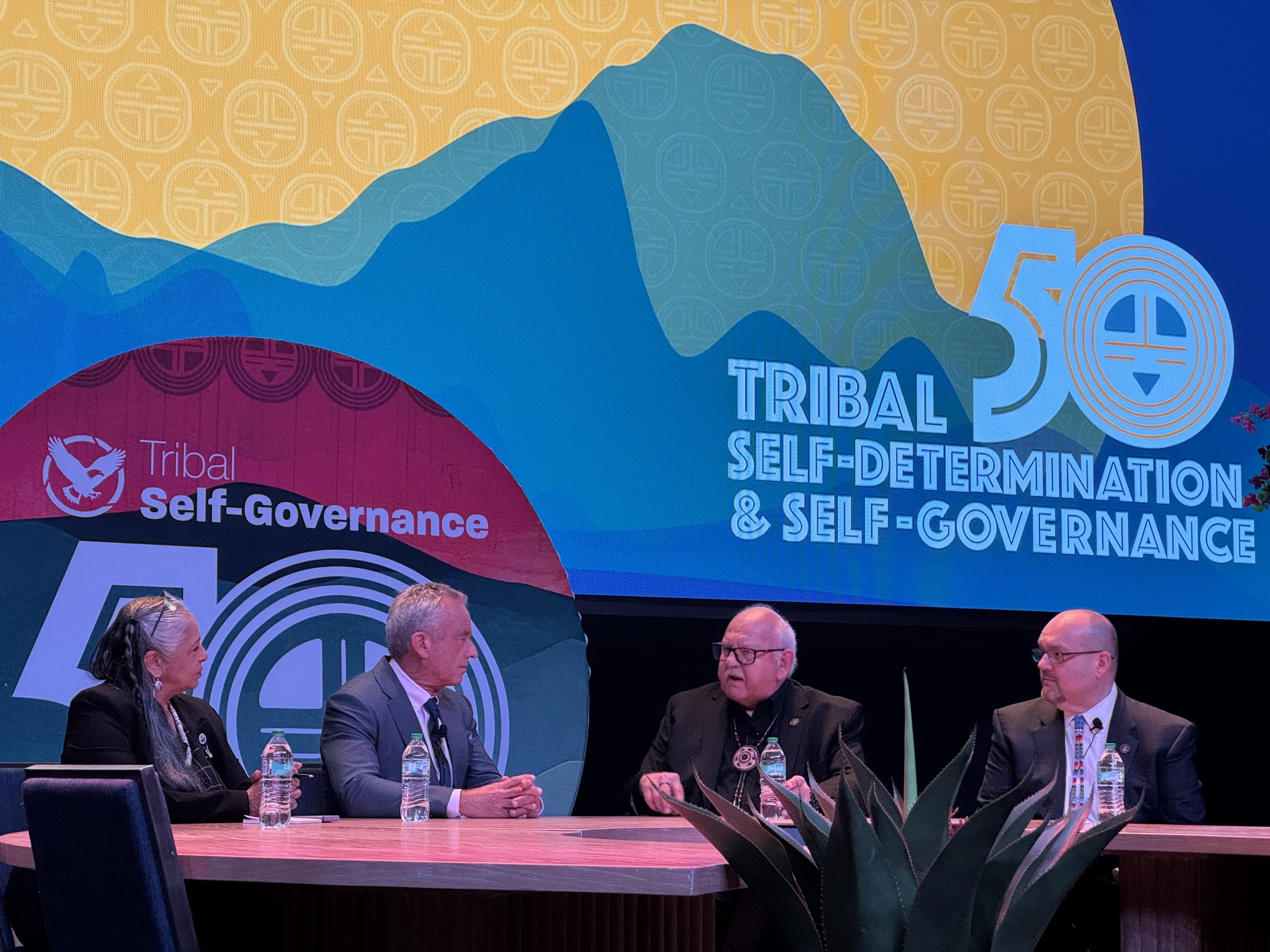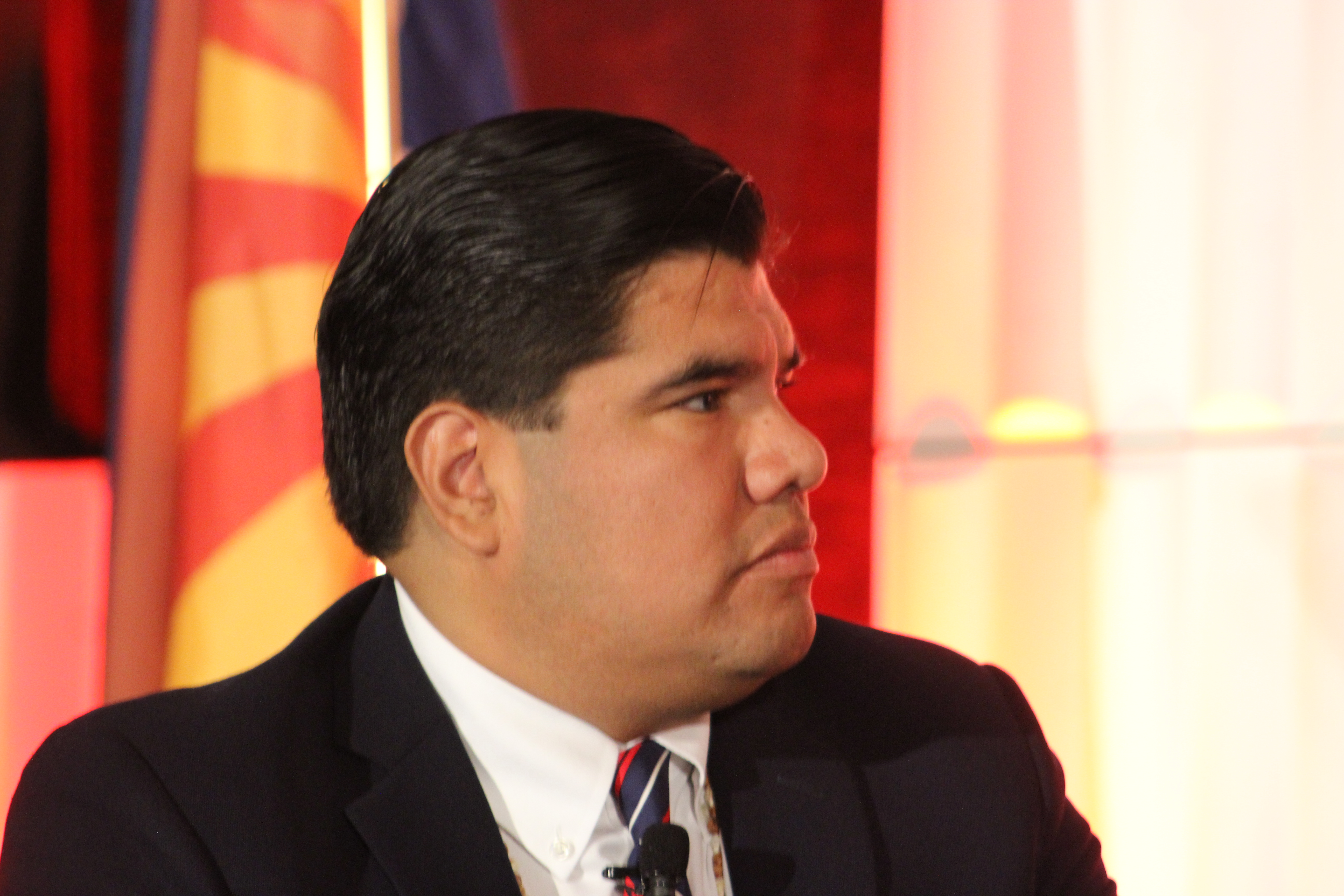
- Details
- By Mark Cruz
Guest Opinion. Critics have accused Health and Human Services (HHS) Secretary Robert F. Kennedy, Jr. of endangering public health by dispatching more than 70 Public Health Service officers to strengthen care in understaffed Tribal communities, claiming that Indian Country should not be a top HHS priority. These claims could not be further from the truth. Secretary Kennedy’s bold action affirms HHS’ commitment to Tribal communities: we will bolster the Indian Health Service (IHS), revitalize Tribal healthcare, and ensure that Indian Country receives the caliber of medical support it deserves.
Last month, Secretary Kennedy mobilized more than 70 uniformed officers from the U.S. Public Health Services (USPHS) Commissioned Corps to address the most urgent frontline staffing needs at IHS facilities. This decisive move ranks among the largest single details of USPHS officers to the IHS in recent years, underscoring the Trump Administration’s commitment to improve health outcomes in Indian Country.
Currently, Democrats are refusing to fund the government until the Trump Administration agrees to use dollars from the Centers for Medicare and Medicaid Services (CMS) to cover illegal aliens’ medical bills. Such coverage, of course, would draw on the already-strained resources of Tribal health programs and violate the Federal Government’s responsibility provided for in Federal statutes and treaties. Agency-wide vacancy rates for medical professionals at IHS facilities stand at a staggering 30%, with a 36% vacancy rate for physicians. Secretary Kennedy, acutely aware of IHS’ struggles, is taking bold action to close gaps, overcome the staffing status quo, and deliver timely, quality care to Native families.
In a recent misleading article, Politico lambasted Secretary Kennedy for his mobilization of the Commissioned Corps because the deployment—120 days—is longer than usual. The author, drawing almost exclusively from anonymous sources, claimed that Secretary Kennedy’s actions on behalf of Tribal communities would prioritize on-the-ground Tribal care rather than administrative functions. In reality, the deployment will strengthen all facets of IHS services, from administration to frontline care. Officers from the Commissioned Corps will be detailed according to each community’s need, with senior officers working behind-the-scenes to strengthen leadership and operations while additional officers address the most urgent frontline staffing needs at IHS facilities.

Mark Cruz, author of this column, hosted a panel at the National Indian Health Board conference at Gila River in Sept. 2025. (Photo/Levi Rickert)
More fundamentally, Politico’s accusation—that Secretary Kennedy cares more about patients in Indian Country than administrative work—misunderstands the point of the Indian Health Service: quality at the point of care is HHS’ priority because tribal members, are a priority. We take the Federal government’s special trust responsibilities and legal obligations to Tribes seriously and this deployment is just the latest
action item to demonstrate that commitment.
Tribal health is the point. Resources that do not reach tribal communities, that do not result in improved care and better health outcomes are wasted resources. That is why Secretary Kennedy has repeatedly pledged to prioritize health care services for Indian Country; his recent action continues to make good on that commitment.
Through a nationwide network of hospitals and clinics, IHS provides care to about 2.7 million American Indians and Alaska Natives across 574 federally recognized Tribes; there is no better way to meet these communities’ immediate needs than to meet them on the frontline. Staffing shortages have long undermined IHS’ ability to meet demand, leaving patients without consistent access to care. Our Tribes deserve better, and Secretary Kennedy understands this and will continue to take action.
Without a restoration of trust in our public health services, we cannot Make America Healthy Again. Keeping our promises—even as resources are stretched thin—sets this Administration’s commitment to Tribal communities apart. Secretary Kennedy’s mobilization of the Commissioned Corps sends a clear message to Indian Country: No matter what Politico says, IHS is worth our time, worth our attention, and
worth our care.
Mark Cruz, a member of the Klamath Tribe, serves as a Senior Advisor to HHS Secretary Robert F. Kennedy, Jr. on Tribal affairs.
Help us defend tribal sovereignty.
At Native News Online, our mission is rooted in telling the stories that strengthen sovereignty and uplift Indigenous voices — not just at year’s end, but every single day.
Because of your generosity last year, we were able to keep our reporters on the ground in tribal communities, at national gatherings and in the halls of Congress — covering the issues that matter most to Indian Country: sovereignty, culture, education, health and economic opportunity.
That support sustained us through a tough year in 2025. Now, as we look to the year ahead, we need your help right now to ensure warrior journalism remains strong — reporting that defends tribal sovereignty, amplifies Native truth, and holds power accountable.
 The stakes couldn't be higher. Your support keeps Native voices heard, Native stories told and Native sovereignty defended.
The stakes couldn't be higher. Your support keeps Native voices heard, Native stories told and Native sovereignty defended.
Stand with Warrior Journalism today.
Levi Rickert (Potawatomi), Editor & Publisher

